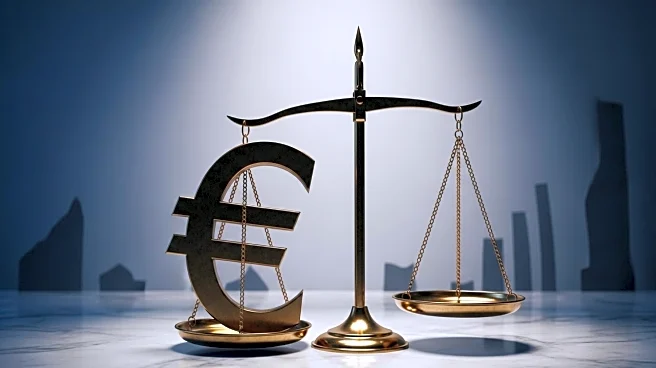What's Happening?
France, Europe's second-largest economy, is grappling with a significant debt burden of €3.3 trillion, raising concerns about the stability of its government. Prime Minister François Bayrou is advocating for €44 billion in budget cuts, which has sparked strikes over pensions and vacation days. European Central Bank President Christine Lagarde has expressed concern over potential government collapses across Europe, although she reassures that France will not seek IMF intervention. The debt service costs are set to dominate the 2026 budget, overshadowing other sectors like education and defense. The French government faces a confidence vote on September 8, with expectations of a potential collapse.
Why It's Important?
The situation in France is critical for the eurozone, as France's economic stability is pivotal to the region. The debt burden and potential government collapse could have ripple effects across Europe, affecting the euro's value and investor confidence. The strikes and budget cuts highlight the social unrest and resistance to austerity measures, which could further destabilize the government. Foreign investments, particularly from non-European countries, add another layer of complexity, potentially influencing France's economic sovereignty and policy decisions.
What's Next?
The upcoming confidence vote on September 8 will be crucial in determining the future of the French government. If the government collapses, it could lead to political instability and further economic uncertainty. The general strike planned for September 10 over proposed vacation day cuts could exacerbate tensions. The international community, particularly investors and eurozone countries, will be closely monitoring these developments, as they could impact economic policies and market stability across Europe.
Beyond the Headlines
The influx of foreign investments, especially from countries like Qatar, Saudi Arabia, and China, poses questions about France's economic sovereignty and control over strategic sectors. This foreign leverage could influence France's policy decisions and economic strategies, potentially leading to long-term shifts in its economic landscape. The social unrest and resistance to austerity measures reflect broader cultural and ethical dimensions, as citizens grapple with changes to their social benefits and economic security.









